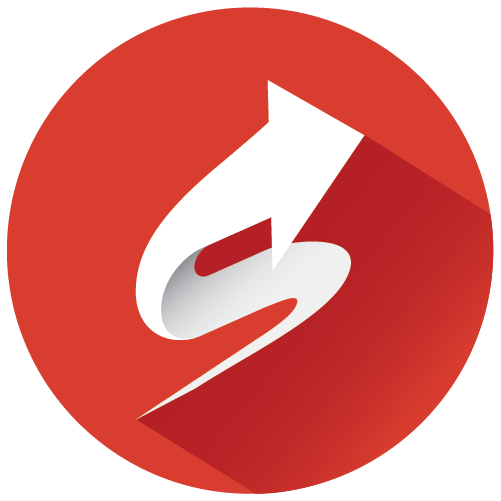Data Science with R Training Program Overview Columbus, OH
You've spent a long time using Excel or basic SQL, generating retrospective reports that only confirm what management knew the prior quarter. Your role involves data analysis, but your results are descriptive rather than predictive. The sector has evolved: organizations in the location are implementing predictive maintenance systems, fraud detection mechanisms, and customer churn scoring models. They are not seeking simple report creators; they are offering a 50%+ premium for certified professionals skilled in R coding who can transform complex data science projects into definite, profitable business outcomes. The demand for data science jobs is surging, and companies require verifiable proof of technical capability via a data science certification. You are currently restricted because your resume lacks the crucial terms—Hypothesis Testing, Generalized Linear Models, RMarkdown, and ggplot2—the very terms HR filters use to select top data science professionals. Without a recognized data science course credential, you remain unnoticed in the recruitment process. That change starts now. This is not just another general data science course online. This program was developed by active Data Scientists to bridge the significant gap between data analysis and rigorous predictive modeling. You will not only learn how to construct models but also understand why they function: grasping the assumptions that underpin regression, managing challenging real-world datasets with missing observations and outliers, and interpreting model coefficients to guide data science for business decisions—not merely aiming for a high R-square value. Our Data Science with R Certification program helps you progress from theoretical knowledge to real-world application. Through practical labs in RStudio, you will complete multiple data science projects using authentic datasets from the finance, retail, and e-commerce industries. You will become expert in vital methods like hypothesis testing, classification, and clustering—skills directly linked to superior data science salary levels and leadership prospects. This course is specifically designed for Analysts, BI Developers, Statisticians, and aspiring data scientists in the location who need to upskill quickly. You will gain access to mentor feedback, curated data science interview questions, and a professional portfolio that demonstrates your capability to resolve business challenges using data science and analytics. Whether your objective is a full data science degree, an entry-level data science internship, or moving into a senior data science role, this certification provides the necessary credibility and confidence for success. Stop accepting low-impact reporting—begin constructing predictive models that generate genuine business expansion and shape strategic decisions.
Data Science with R Training Course Highlights Columbus, OH
Rigorous Statistical Modeling Focus
Dedicated, in-depth exploration of Regression, Classification, and Clustering, guaranteeing mastery of the three foundational pillars of enterprise analytics.
30+ Hours of Live R Coding Labs
Intensive, hands-on application in R Studio for data manipulation (dplyr), visualization (ggplot2), and sophisticated model construction.
Exhaustive 2000+ Practice Scenarios
Move beyond standard test banks. Our questions concentrate on statistical assumptions, model interpretation, and practical R coding output.
Mastery of Critical R Packages
Achieve functional proficiency in the packages most relevant in production: tidyverse, caret, e1071, and core statistical libraries.
Portfolio-Ready Final Project
Complete a comprehensive Data Science project (from data preparation to model deployment) that you can feature for employers in Columbus, OH's highly competitive analytics sector.
24x7 Expert Guidance & Support
Receive immediate, high-quality assistance from certified Data Scientists for your R code errors, statistical questions, and model validation challenges.
Corporate Training

Ready to transform your team?
Get a custom quote for your organization's training needs.
Upcoming Schedule



Skills You Will Gain In Our Data Science with R Training Program
Statistical Inference & Hypothesis Testing
Move beyond p-values. You will learn to design rigorous A/B tests and draw statistically valid conclusions that confidently inform high-stakes business decisions.
Data Manipulation & Munging
Become extremely efficient. Master the tidyverse suite (dplyr, tidyr) to clean, transform, and reshape messy, real-world data from Columbus, OH systems (e.g., CSV, JSON) rapidly.
Predictive Modeling (Regression)
Build robust forecasting systems. You will master Linear and Generalized Linear Models (GLMs), understanding assumptions, diagnostics, and interpretation of coefficients for critical business indicators.
Advanced Classification Techniques
Solve real-world classification challenges (e.g., fraud, churn). You will implement Logistic Regression, Decision Trees, and Random Forests in R, and interpret their outputs.
Unsupervised Learning (Clustering/Association)
Uncover hidden customer segments. You will master K-Means clustering and Association Rules (Market Basket Analysis) to support targeted marketing and inventory strategies.
Advanced Data Visualization
Stop producing unattractive charts. Master ggplot2 to create persuasive, publication-quality visualizations that clearly communicate complex model insights to non-technical stakeholders.
Who This Program Is For
Business Intelligence (BI) Analysts
Market Researchers
Statisticians / Economists
Data Analysts
Software Engineers Aiming for Data Science
Experienced IT Professionals Seeking a Domain Pivot
If you possess a strong analytical mindset, basic exposure to programming, and are weary of being overlooked for high-impact roles, this intensive training in R and statistical modeling represents your necessary route to a Data Scientist title.
Data Science with R Certification Training Program Roadmap Columbus, OH


Why get Data Science certified?
Stop getting filtered out by HR bots
Get the senior Data Scientist and Modeling interviews your statistical and technical experience already deserves.
Unlock the higher salary bands and specialized roles
Unlock the higher salary bands and specialized roles reserved for professionals who can build and deploy complex statistical models.
Transition from descriptive reporting to strategic, predictive analytics
Transition from descriptive reporting to strategic, predictive analytics, earning a mandatory seat at the core business decision-making table.
Eligibility and Pre-requisites
There is no single global R certification, but the core objective is to validate practical, demonstrable competence in statistical modeling using the R language. To prove your capability, you must meet the following:
Formal Statistical Training: Completion of a comprehensive program covering inferential statistics, regression, and machine learning algorithms (satisfied by this course).
R Coding Proficiency: Mandatory, demonstrable ability to write, debug, and optimize R code for data cleaning, visualization, and model building using standard packages.
Domain Knowledge: A strong analytical mindset and foundational understanding of business problems that predictive modeling is designed to solve.
Course Modules & Curriculum
Lesson 1: Introduction to Statistics for Data Science
A brutal, practical overview of descriptive statistics, probability distributions, and inferential concepts (sampling, Central Limit Theorem). Focus on application, not academic proofs.
Lesson 2: Hypothesis Testing I (T-Tests and ANOVA)
Master the core process of hypothesis formulation, test selection, and p-value interpretation. Hands-on implementation of T-tests and ANOVA in R for comparing means and making valid conclusions.
Lesson 3: Hypothesis Testing II (Chi-Squared and Non-Parametric)
Analyze categorical data using Chi-Squared tests and apply non-parametric methods when normal assumptions fail. Learn to make statistically sound decisions in real-world data science projects that drive data science for business success and contribute to higher data science salary potential.
Lesson 1: Regression Analysis
Master the assumptions and interpretation of Simple and Multiple Linear Regression. Learn model diagnostics, variable selection, and how to effectively communicate model coefficients to business leadership.
Lesson 2: Classification Models (Logistic Regression)
Dive deep into Logistic Regression for binary classification problems. Understand concepts like log-odds, ROC curves, AUC, and how to set appropriate threshold values for optimal business impact.
Lesson 3: Tree-Based Models (Decision Trees & Random Forests)
Implement powerful non-linear classification models. Master Decision Trees and Random Forests in R, learning hyperparameter tuning and variable importance interpretation for robust, high-accuracy predictions.
Lesson 1: Clustering Techniques
Explore how Data Science uses K-Means and Hierarchical Clustering to uncover hidden customer segments and data anomalies. Learn to evaluate cluster validity and apply results to data science projects and data science for business strategies that enhance decision-making and boost your data science jobs potential.
Lesson 2: Association Rule Mining
Implement the Apriori algorithm for Market Basket Analysis. Learn how to calculate and interpret Support, Confidence, and Lift to drive product recommendation and inventory decisions.
Lesson 3: Advanced Data Visualization
Master ggplot2 to create complex, informative, and visually compelling plots (scatter plots, box plots, heat maps, facets) to clearly communicate model findings and data insights.
Lesson 1: Model Evaluation and Validation
Master key performance metrics (Accuracy, Precision, Recall, F1-Score) and techniques like cross-validation to ensure your models are robust and perform reliably on unseen data.
Lesson 2: Introduction to Time Series Forecasting
A practical overview of time series components (trend, seasonality). Introduction to basic forecasting methods (Moving Averages, ARIMA) to handle temporal data common in Columbus, OHretail and finance.
Lesson 3: Advanced R Reporting and Productionization
Create dynamic reports and dashboards using RMarkdown to present insights effectively. Learn code optimization and production best practices - key abilities valued in data science internships and senior-level data science projects. Build end-to-end solutions that increase your impact and boost your data science salary potential.


















